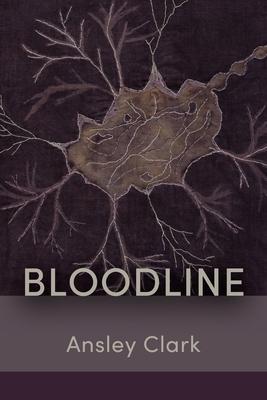In Bloodline, Ansley Clark navigates the body's systems as a legacy that comes to us in the shadows. A woman belongs "to everyone" as she reads the world around her, its systems and signs, and understands the way fate is inscribed from within. I startled at each poem, the wild complexity and fortitude of language, and the fragility of a speaker mired in longing. These are poems I want to keep near, return to, speak out loud as incantations.
-Ruth Ellen Kocher, author of Archon / After
Bloodline isn't so much a poetry collection as it is an inhabitable installation of intergenerational healing from illness, patriarchy, settler colonialism, and imperial capitalism. The poems provide "light in an ill-lit century" where systems of subjection pulse under the skin and a mother's illness opens into a confrontation with an America where "the systems disconnect us." Give me a poem by Ansley Clark any time as a gust to sharpen my perception of the world.
-Rushi Vyas, author of When I Reach for Your Pulse
In riveting language that fractures generational systems of oppression into all its terrible crystals, Ansley Clark's Bloodline fully embodies Muriel Rukeyser's timeless, yet always urgent call and response: "What if one woman told the truth about her life? The world would split open." Let us praise Ansley Clark for poetry that defies so much in Bloodline's exceptional making to revive respect, dignity, power, and love.
-Sandra Yannone, author of The Glass Studio
